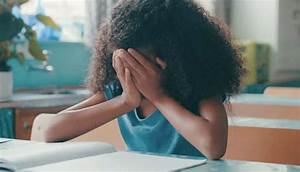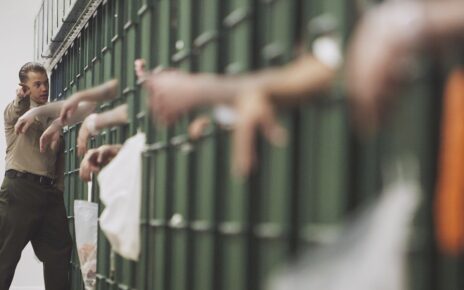Barlatier’s “Ayiti – Stories and Songs from Haiti” is a music concert performed with her family band and prerecorded exclusively for the Miami-Dade Arts Education Collective. Through the month of May, the concert will be available to Miami-Dade County Public School teachers to share with students and incorporate its contents into their lesson plans honoring Haitian Heritage Month.
The performance consists of 10 music, dance and drum pieces based on themes of community, gratitude and nature. Most of the songs performed were passed down through generations and taught to Barlatier by her musician father, Jan Sebon, a longtime member of the Koleksyon Kazak band.
Barlatier has performed as a hand drum percussionist, folkloric dancer, singer and songwriter since the age of 12, after joining her father’s band. Like her parents, who pioneered Haitian jazz music in Miami, she and fellow musical artist Jayan Bertrand are creating their own sound with Kazoots – Miami’s only Haitian band – to showcase a fusion of jazz, rock and blues. She also joined a drumming and women’s dance group called Venus Rising.
Barlatier jumped at the chance to make the concert show available for students, as it meant creating representation and sharing a positive narrative of her motherland, something she felt she grew up without.
“I would’ve loved to have a show like this as I was growing up,” she said. “I want students who are not familiar with [Haiti] to get to know it as we know it, not what they see on television.”
Presentation of the show was made possible through the M-DCPS Cultural Passport program, an initiative created more than 10 years ago to provide K-12 students with field experiences that increase their cultural knowledge through the arts.
Since its inception, students have been able to visit some of South Florida’s most notable arts and cultural organizations for live performances as a push to expand interdisciplinary classroom instruction, and create strong connections between art and non-art disciplines outside of school.
M-DCPS’ visual and performing arts department oversees the program’s operations and is supported financially through various funders, such as Knight Foundation, National Endowment for the Arts, Miami Foundation and several others.
Because of the pandemic, such field trips had to be canceled and many worried that the program’s impact would diminish. Consequently, a few arts organizations that would normally host students at their venues decided to band together to form the Miami-Dade Arts Education Collective to continue providing cultural experiences virtually.
“We all needed to fulfill our mission to provide performing arts [experiences] for Miami-Dade schools kids,” said Victoria Row-Traster, director of education and family programming at Miami Theater Center, explaining why the collective was formed.
It consists of the Adrienne Arsht Center for the Performing Arts of Miami-Dade County, Miami Theater Center, Culture Shock Miami and South Miami-Dade Cultural Arts Center. The four organizations provide virtual and often prerecorded content free of charge through a link to M-DCPS, which is responsible for reviewing the content before it is disseminated it to teachers.
Private, charter and homeschool teachers can also gain access to the performances by request.
Barlatier’s performance is not the first one the collective has brought into classrooms.
“A Kids Play About Racism,” based on Jelani Memory’s “A Kids Book About Racism,” kicked off the virtual performance season last October. The play, which also is available this month, explains what racism is and how elementary school students can identify racism in any situation and determine how to address it.
An alternative program was made available to high school students that addresses similar topics, but inspires older youth to follow in the footsteps of civil rights activists who fought for equality.
Then came other shows, like “Hip Hop Nutcracker,” “Air Play” – which fused circus and science using giant kites and balloons – and Black Violin, a music duo composed of Wil B. and Kev Marcus who merge classical music with hip-hop.
Last month, Ballet Hispánico captured the hearts of thousands of school students, taking them on a tour through Latin American dance and music genres with world-class choreographers.
Now, Barlatier hopes to take those same students, if not more, by storm.
“I want them to feel the same way I felt when I learned about Latin and Black history. When [Haitian] people won their freedom, it did not stop there, they went on to help other people,” said Barlatier, hinting that the first Black-led republic fought for other nations to also get a taste of freedom. “Ayisyen (Haitian) culture is a part of their culture, even if they may not be of descent. It’s an important story to know because it is the beginning of a lot of things. A lot of us have the same history.”
The eight virtual performances scheduled for the 2020-2021 school year have already reached more than 65,000 students. The original goal was to reach somewhere between 5,000-10,000, but thanks to digital delivery, students in South Miami-Dade who can’t usually attend in-person offerings have been able to participate, as distance is no longer an issue.
“We’re hoping to reach 70,000 and possibly even more,” said Row-Traster. “It’s been a disruptive year for students in their education. There will be a lot of talk about the curriculum gap and how to address that, and the arts education component needs to be a part of that conversation. We feel that we have played a role in bridging the gap.”
Row-Traster said feedback from educators has been greater than she anticipated, remarking that the programming has been well-received by both student and teacher audiences.
The collective is already working to brainstorm what the next season, running October 2021 through January 2022, will look like. A desire to return to live performances could be realized for the arts organizations hoping to bring students to their venues by late fall or early spring.
Barlatier has already agreed to perform the concert live at the Arsht Center sometime in August. She intends to work on developing more material for her younger audience, including a children’s play about embracing and reclaiming the punk rock genre in the Black community










